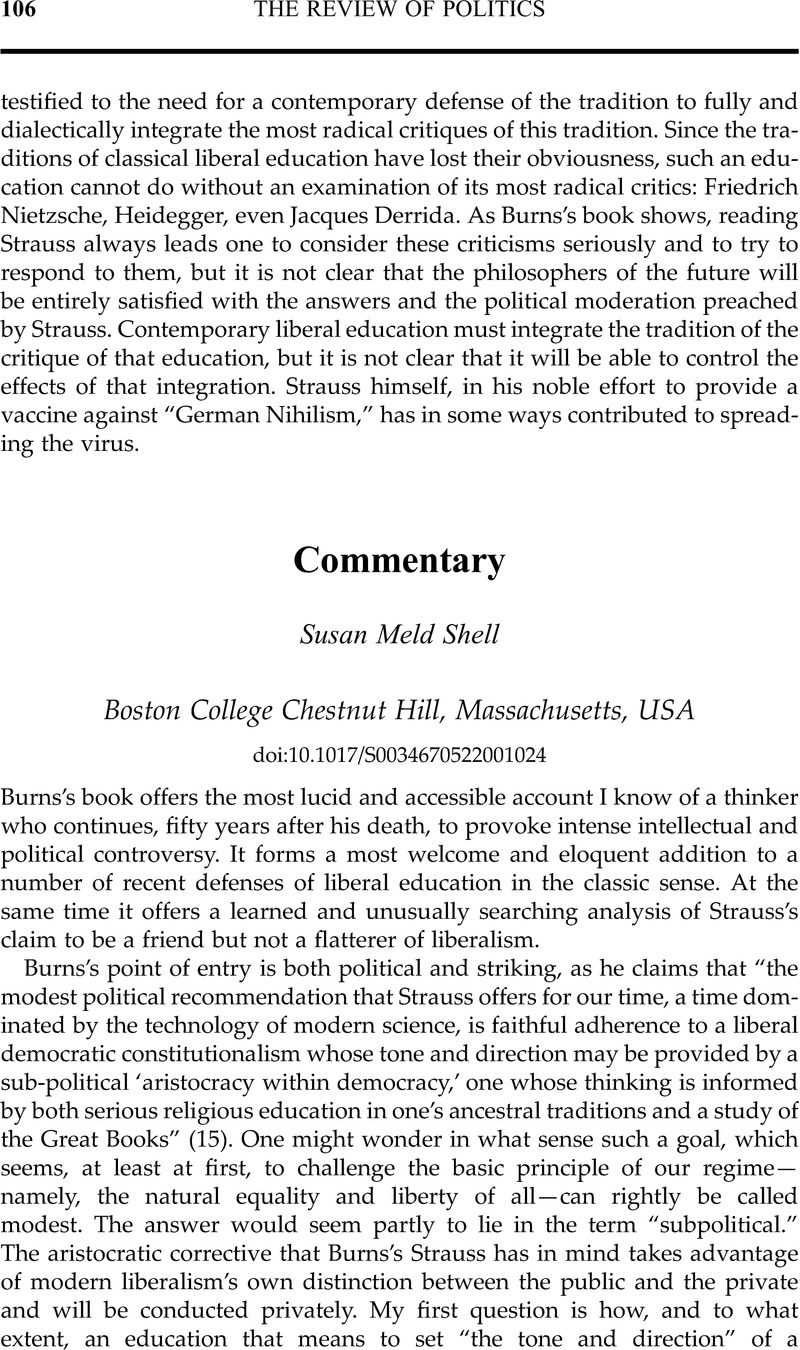No CrossRef data available.
Article contents
Commentary - Timothy W. Burns: Leo Strauss on Democracy, Technology, and Liberal Education. (New York: State University of New York Press, 2021. Pp. 201.)
Review products
Timothy W. Burns: Leo Strauss on Democracy, Technology, and Liberal Education. (New York: State University of New York Press, 2021. Pp. 201.)
Published online by Cambridge University Press: 23 January 2023
Abstract
An abstract is not available for this content so a preview has been provided. Please use the Get access link above for information on how to access this content.

- Type
- A Symposium on Timothy W. Burns's Leo Strauss on Democracy, Technology, and Liberal Education
- Information
- Copyright
- Copyright © The Author(s), 2023. Published by Cambridge University Press on behalf of University of Notre Dame
References
10 Published as “The ‘Modern Principle’”: The Second Walgreen Lectures by Leo Strauss (1954),” ed. Anthony Vecchio and J. A. Colen, Interpretation 47, no. 1 (Fall 2020): 43–117.
11 Strauss, Leo, “German Nihilism,” Interpretation 26, no. 3 (Spring 1999): 368Google Scholar.
12 Strauss, Leo, Liberalism Ancient and Modern (New York: Basic Books, 1968), 226Google Scholar.


